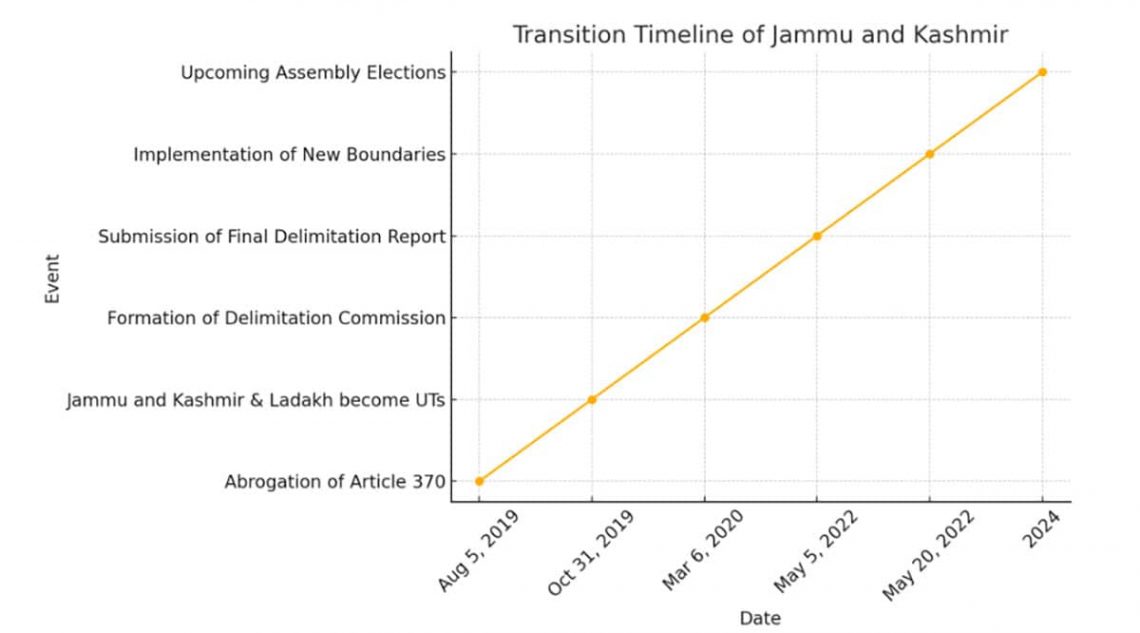The Assembly Elections in Jammu and Kashmir will be conducted in three phases with voting scheduled for September 18, September 25 and October 1 followed by the counting of votes on October 4.
The transformation of Jammu and Kashmir from a state to a Union Territory was a significant political move marked by the abrogation of Article 370 on August 5, 2019. This abrogation led to the bifurcation of the state into two Union Territories: Jammu and Kashmir, and Ladakh. With the new status, a delimitation process became essential to reorganise the electoral constituencies to reflect the new administrative structure.
Key changes due to delimitation
The Delimitation Commission, formed in March 2020, was tasked with redrawing the boundaries of the constituencies in Jammu and Kashmir. The commission was chaired by retired Justice Ranjana Prakash Desai, with members including the former Chief Election Commissioner of India, Sushil Chandra, and the State Election Commissioner for Jammu and Kashmir, KK Sharma. After extensive consultations, the final report was submitted in May 2022.
Here are the key changes:
• Jammu gained six new assembly constituencies, while Kashmir gained one.• The changes were based on the population data from the 2011 census.• The commission faced challenges due to the cultural and geographical diversity of the region.
Constituency changes pre- and post-delimitation
Distribution of seats
With the new delimitation, the 90 assembly constituencies are divided as follows:
Kashmir region: 47 constituenciesJammu region: 43 constituencies
Reserved seats:
The commission also reserved nine assembly constituencies for Scheduled Tribes (STs) for the first time in Jammu and Kashmir’s history. This was significant given the demographic presence of Gujjar, Bakarwal and other tribal communities in the region. Additionally, seven constituencies were reserved for Scheduled Castes (SCs), mainly in the Jammu region.
• 9 constituencies reserved for Scheduled Tribes• 7 constituencies reserved for Scheduled Castes
Additionally, 24 seats are reserved for Pakistan-occupied Kashmir (not contested).
Impact of the First Assembly Elections as a Union Territory
The upcoming assembly elections in Jammu and Kashmir will be historic as it will be the first time the region votes as a Union Territory. The delimitation has significantly altered the political landscape potentially affecting the outcome of the elections.
Key factors:
• The addition of new constituencies in Jammu might shift the political balance.• The reserved constituencies for STs and SCs could influence the representation of marginalised communities.• The reorganisation might lead to new alliances and political strategies.
Link to article –
How delimitation changed Jammu & Kashmir’s political, and voter, landscape
